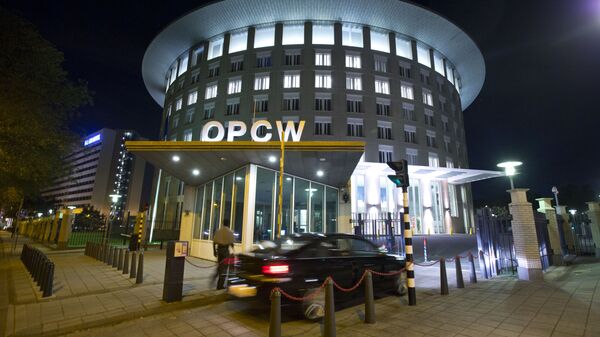On Monday, members of the UN Security Council, at the request of the Russian mission, held an informal meeting to assess the situation around the FMM’s Final Report on the incident in the Arab Republic.
In November, whistleblowing website WikiLeaks published an email, sent by a member of the Organization for the Prohibition of Chemical Weapons (OPCW) mission to Syria to his superiors, in which he voiced his "gravest" concerns over the redacted version of the report in question, which he co-authored. According to the OPCW employee, the document, which is understood to have been edited by the secretariat, misrepresented facts, omitted certain details and introduced "unintended bias," having "morphed into something quite different to what was originally drafted."
"We once again propose to resolve the conflicting situation through the means of holding of a briefing under the auspices of the OPCW and, possibly, with the assistance of all concerned countries and with the participation of all experts of the Fact-Finding-Mission, who worked on the Duma incident, to find a consensus on this resonant incident," Shulgin said on Monday.
Shulgin also suggested that the working methods of FFM must be improved, stressing the necessity for its members to personally visit sites of alleged use of chemical weapons and collect evidence samples, as well as strictly adhere to the chain of custody over the items of evidence and guarantee geographically-balanced makeup of the mission.
In July, Shulgin said that the head of the mission probing claims of a chemical attack in Duma had never travelled to this city.
Reports about an alleged chemical attack in Eastern Ghouta’s Duma emerged on April 7, 2018. The European Union and the United States promptly accused Damascus of being behind it, while the Syrian government denied any involvement. Syria and Russia, a close ally of the former, said that the attack was staged by local militants and the White Helmets group.
A week later, without waiting for the results of an international investigation, the United States, the United Kingdom and France hit what they called Syria’s chemical weapons facilities with over 100 missiles in response to the reported attack.


